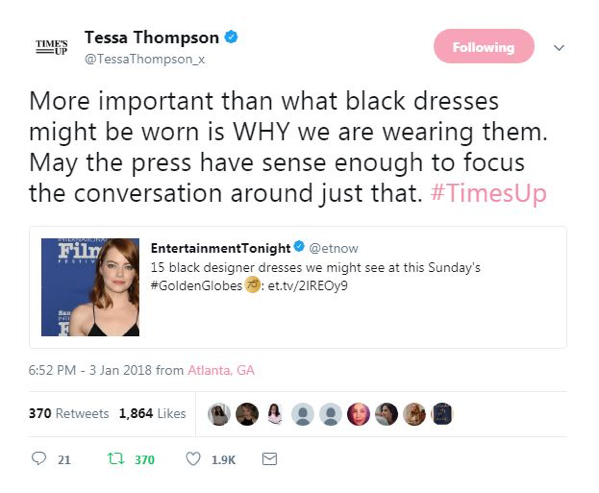Abortion rights, women of color, and LGBTQI+ people are under attack. Pledge to join us in fighting for gender justice.
Maryland Must Join the Movement to Modernize Workplace Harassment Law

From New York to California to Virginia, there is growing movement in states and localities to remove harmful barriers that workplace harassment survivors face when bringing claims against their employers. One of the ways community-based organizations are mobilizing around these issues is in support of legislation that disavows the harmful and outdated requirement that harassing conduct be “severe or pervasive” to be considered unlawful.
Maryland is one of the most recent states to introduce legislation, S.B. 834, stating that harassing conduct need not be “severe or pervasive” to constitute unlawful harassment, and the bill has already passed the Senate unanimously. Under the bill’s standard, survivors would have to show that “based on the totality of the circumstances, the conduct unreasonably creates a working environment that a reasonable person would perceive to be abusive and hostile.”
The COVID-19 economic crisis has left workers more desperate to keep a paycheck and, thus, more vulnerable to workplace harassment, underscoring the urgent need for stronger workplace harassment laws like S.B. 834. If Maryland truly wants to end workplace harassment, now is the time to pass this bill.
How the Current Legal Standard Fails Survivors
In evaluating whether sexually or racially harassing conduct rises to the level of unlawful workplace harassment, courts consider whether the conduct is “severe or pervasive” enough to create a hostile work environment. Over time, this standard has become an unreasonably high burden for survivors because many courts have interpreted it so narrowly that cases challenging workplace behavior most people would find egregious and harassing are thrown out.
For example, a Maryland federal district court dismissed the case of an employee who endured same-sex harassment from his supervisor over a seven-year period. The supervisor inquired about the plaintiff’s sex life, entered the bathroom with the employee and pretended to lock the door behind him, and regularly commented on the plaintiff’s physical appearance. During one incident, the supervisor positioned an illuminated magnifying glass over the plaintiff’s crotch, looking through it while pushing the lens down and asking, “Where is it?” Despite these repeated violations and inappropriate behaviors, the court found that this conduct was not “severe or pervasive” enough to be unlawful harassment.
When a survivor brings a harassment lawsuit, courts should consider all the ways the employer harassed the survivor. Instead of viewing events in their totality, under the “severe or pervasive” standard, judges often parse apart each instance of harassment and consider each in isolation. Judges applying the standard determine whether the conduct is egregious or frequent enough, and their own biases and experiences can impact the analysis—leading cases to be dismissed before they are fully and fairly heard by a jury. This framework minimizes survivors’ experiences and the impact of harassment at work.
“Severe or pervasive” harms women of color in unique ways.
The “severe or pervasive” standard has particularly failed women of color bringing harassment claims because it fails to consider how sexual objectification of women of color is often simultaneously rooted in both racism and sexism. Too many harassment cases are thrown out because judges’ application of the “severe or pervasive” standard does not consider the complexities of individuals’ identities. Instead of, for example, recognizing that race and gender-based discrimination often co-exist for women of color as a single pattern of behavior, judges applying this standard may separate specific conduct “based on race” from conduct “based on gender” to determine the pervasiveness of each type of conduct. This framework effectively excludes women of color, and other people with multiple identities, denying them access to justice for the discrimination and harassment they have suffered.
The harm from the “severe or pervasive” standard not only extends to the courtroom, but trickles into workplaces.
The outdated “severe or pervasive” standard leads many survivors to not make a complaint or seek help for fear their claims will not be legally actionable. Given the bad court interpretations that have come out of “severe or pervasive,” these concerns are not unfounded. Placing this burden on plaintiffs does little to incentivize employers to create safe and harassment-free workplaces.
Maryland has a chance to protect survivors by joining the movement to strengthen workplace harassment laws.
The “severe or pervasive” standard does not reflect the realities of our workplaces, power dynamics, or modern understandings of harassment at work and its impacts on those who experience it. By doing away with this standard under Maryland’s law, S.B. 834 helps address some of these problems.
Maryland would not be the first state to pass legislation addressing this problematic standard. New York state, New York City, and California have passed similar laws to S.B.834. Since then, localities like Montgomery County, Maryland have followed. Several states, including New Jersey and Vermont, are considering similar legislation this session.
It is time Maryland joins these states and localities by passing this important legislation.






